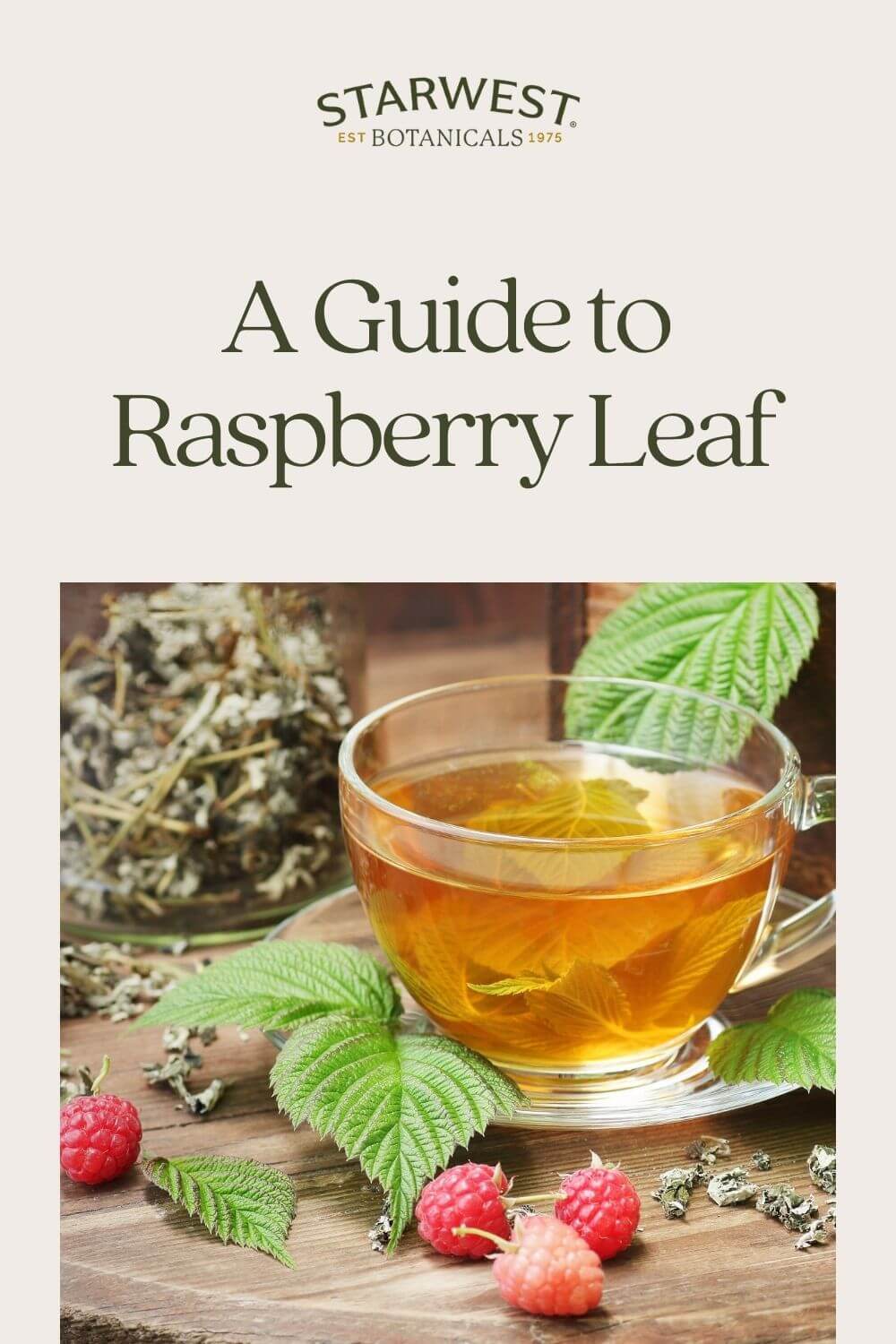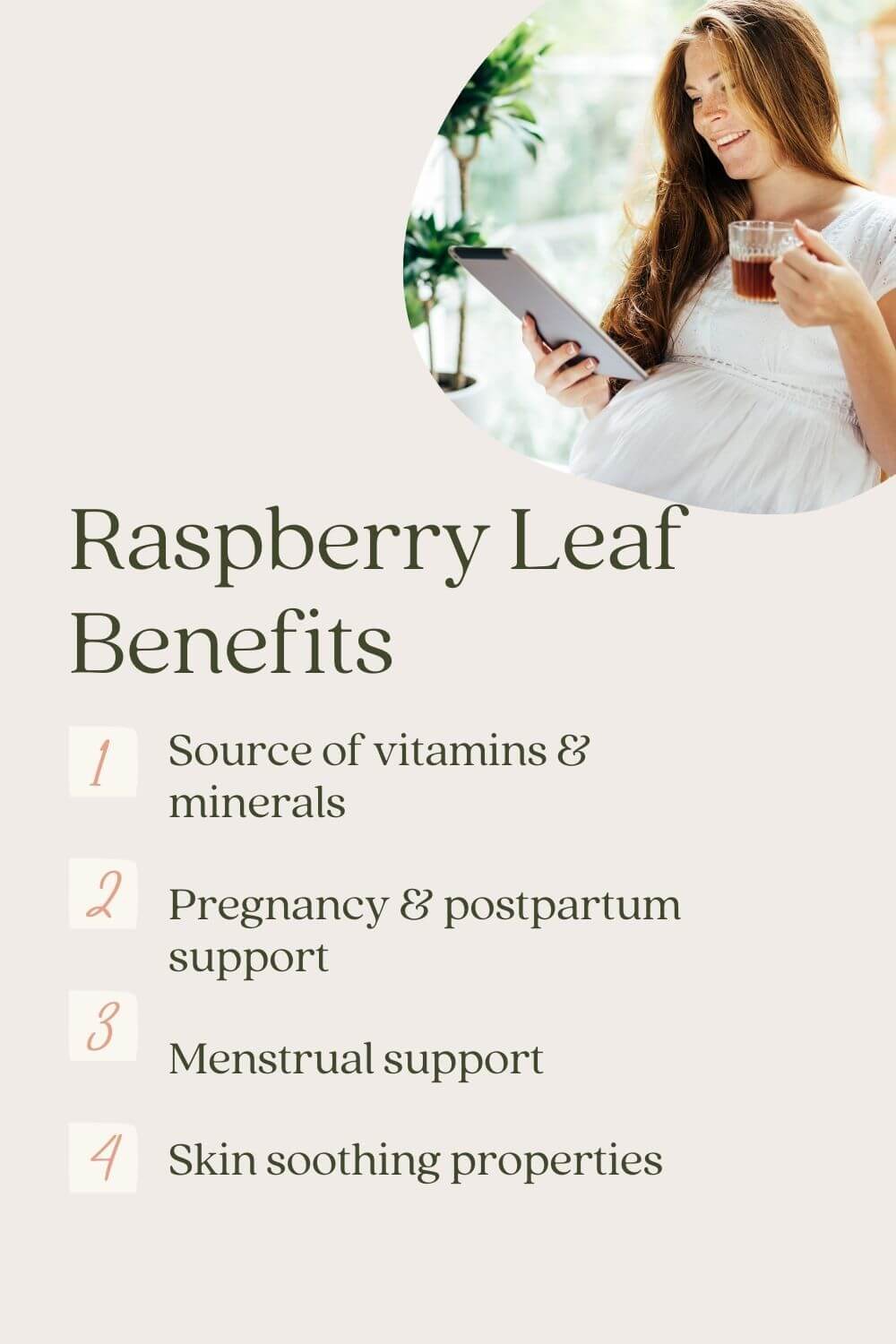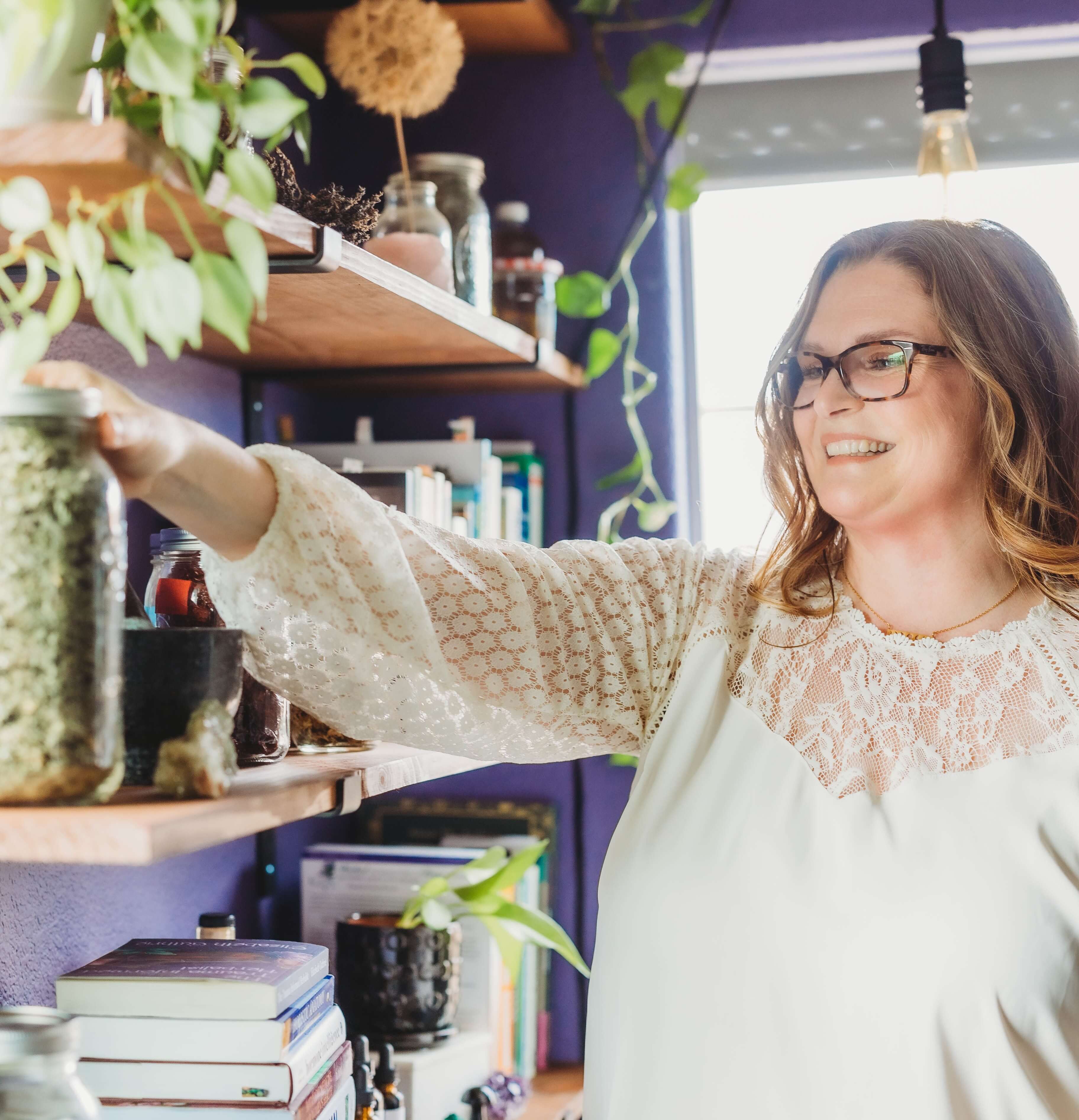A Guide to Raspberry Leaf | Starwest Botanicals
Posted by Danielle Caster on 01-08-2025

Long before starting my herbalism journey I was introduced to raspberry leaf. Every time I brew a cup of red raspberry leaf tea it brings me right back to the time when I was pregnant. This is one herb that has stood the test of time in women’s health and is often recommended to pregnant women by their providers in the second to third trimester of pregnancy to help support the birthing process.
As a Clinical Herbalist who specializes in women’s reproductive health and hormones, I also look to this herb often to support women in my practice.
What Are the Benefits of Raspberry Leaf?
You might not be familiar with raspberry leaf, but you most certainly are familiar with the fruit of this plant. Yes, raspberry leaf tea leaves are the leaves of the same plant we get those sweet and tart raspberries from.
he leaves are usually harvested before the plant goes to flower in the summer and are most commonly known for supporting women’s reproductive health, but have other beneficial uses as well. The high level of tannins in the leaves give raspberry leaf tea a similar taste and mouthfeel as black tea, a beloved classic around the world.
Raspberry leaf is considered a nutritive herb. Nutritive herbs are herbs that are rich in vitamins and minerals that are easily assimilated by the body.
Raspberry leaf contains high amounts of iron, selenium, magnesium, manganese, calcium, niacin, tin, and vitamins A, B1, C and E. In lower levels it contains minerals such as phosphorus, potassium, sodium, thiamine, zinc and many others. Making raspberry leaf tea a nice way of getting more of those essential vitamins and minerals we are so often lacking in our modern diets.
I am aware we are talking a lot about how raspberry leaf is supportive to women’s health, but I do want to point out, these nutritive properties are beneficial to all individuals.
Pregnancy, Labor & Postpartum Support
Raspberry leaf has toning and hemostatic properties that, when taken after labor and delivery may help support the body as it recovers after birth.
When paired with other nutrient dense herbs, raspberry leaf has properties that may help support a new mother’s milk production. Because of its drying tendency, I wouldn’t recommend raspberry leaf tea alone to support milk supply, but paired with herbs that balance its properties it can be super beneficial in postpartum support.
Menstrual Support
For many of the same reasons that raspberry leaf is so supportive during pregnancy and labor, raspberry leaf can also be a great herb to lean on when there are signs of certain menstrual irregularities. Its high levels of nutrients and toning properties help to nourish and support the uterus and can be beneficial for women who deal with cramps and/or heavy bleeding during their menstrual cycles.
Drinking the tea the week leading up to your period may help to ease these types of symptoms.

Using raspberry leaf topically
Brewing a strong infusion of raspberry leaf tea, letting it cool and using it as a wash can be beneficial for various skin, mouth and eye concerns. It may help calm itchy, irritated skin, serve as a mouthwash for tender mouth sores, or act as an eye wash to help reduce buildup and redness.
It is also commonly used in lotions, toners or masks to tone and soothe oily troubled skin.
Can you take red raspberry leaf daily?
Though raspberry leaf is considered safe and could technically be taken daily, because of its astringent properties it can tend to exacerbate people with already dry conditions or who tend towards a dry constitution. Using raspberry leaf in a tea blend with other nutritive and moistening herbs can help balance these properties.
Is Red Raspberry Leaf Right for Everyone?
As is the case with most herbs, raspberry leaf might not be right for everyone. Keep the following things in mind when considering if raspberry leaf is right for you:
- Raspberry leaf tends to be drying and can exacerbate dry conditions. Individuals who tend towards a dry constitution or are already suffering from dry conditions may not want to use raspberry leaf. Combining raspberry leaf with other herbs that can balance these properties is recommended.
- Though raspberry leaf is considered safe during pregnancy, it is best to wait until after the first trimester to consume raspberry leaf. Use in the second and third trimester is recommended.
- Because of the tannins in raspberry leaf tea, a strong tea taken on an empty stomach may cause nausea. Simply eating before drinking the tea can help to elevate symptoms of nausea.
Where can you source quality organic red raspberry leaf?
Starwest Botanical provides certified organic dried cut and sifted raspberry leaf. With Starwest Botanicals you can genuinely trust the quality of the product you receive. Start shopping with confidence and peace of mind today. Are you looking to add raspberry leaf to your business? Apply for a wholesale account here to save 40% of retail prices.

Bio
Danielle Caster is a Clinical Herbalist who uses her knowledge of herbalism along with a holistic approach to support women in achieving a more embodied way of living.
Danielle specializes in Women’s Reproductive & Hormone Health from Preconception through Menopause, and everything in between.
Through one on one Herbal Wellness Sessions, Danielle curates custom holistic protocols for her clients, addressing the root cause and restoring balance to the body.
A mother of three and avid gardener. Danielle also enjoys growing a multitude of medicinal plants and vegetables, spending time with her family, traveling and reading.
For more information about working with Danielle please visit her website or follow her on Instagram.
____________________________________________________________________________
NOTE: All information for this monograph was taken from herb books I own and trust. If you want information on which books I sourced specific information from, please just reach out.
Bibliography
- Sinadinos, Christa
The Essential Guide to Western Botanical Medicine, Christa Sinadinos, Fieldbrook, California 2020, pg 418-420
- Chevallier, Andrew
Encyclopedia of Herbal Medicine, DK Publishing 2016, pg 264
- Apelian, Nicole P.h.D & Davis, Claude
The Lost Book of Herbal Remedies, Claude Davis 2021, pg 197
- Hoffman, David
Medical Herbalism, Healing Arts Press 2003, pg 578
- Lord, Rachel
Clinical Herbalism, Plant Wisdom from East and West, Elsevier 2022, pg 195
- Romm, Aviva
Botanical Medicine for Women’s Health, Elsevier Inc. 2018, pg 433-434
- Mars, Brigitte
The Desktop Guide to Herbal Medicine, Basic Health Publications Inc. 2016, pgs 251-253
- Sams, Tina
The Big Book of Herbal Medicine, Rockridge Press 2022, pg109
- Groves, Maria Noel
Body into Balance, Storey Publishing 2016, pg 36-37
- Rose, Karen M.
The Art & Practice of Spiritual Herbalism, Quarto Publishing Group 2022, pgs 106-107
- Gladstar, Rosemary
Medicinal Herbs, A Beginner’s Guide, Storey Publishing 2012, pg 179


